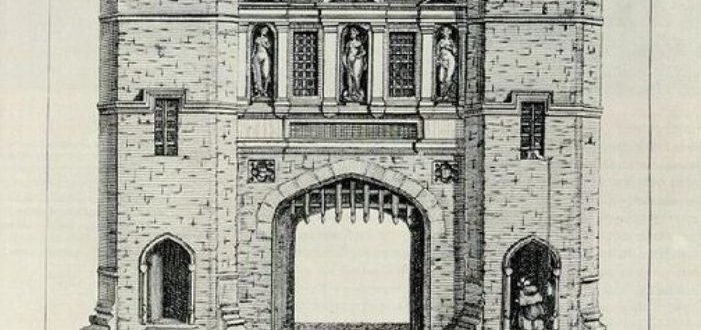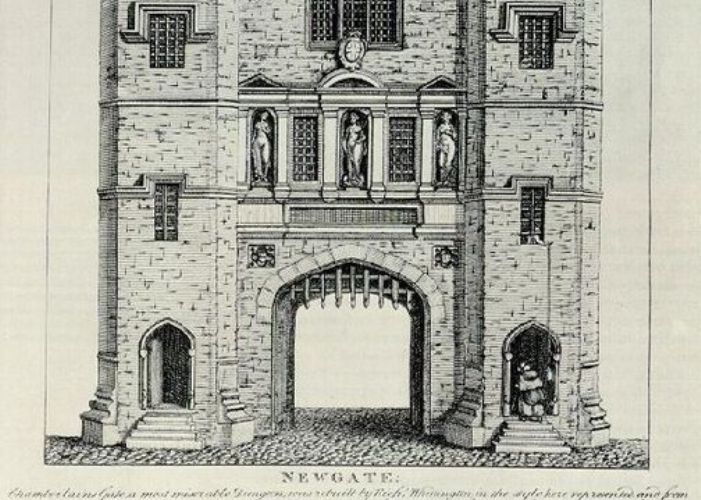16-22 March 1415: Ships from Holland and Zealand and a Court Case in London
By Dan Spencer
This week saw a commission granted for the hire of ships from the Low Countries and a court case in London.
On 18 March 1415, Richard Clitherowe and Simon Fleet were appointed to travel to Holland and Zealand to hire ships for the expedition. Clitherowe had been allocated £2,000 for this purpose earlier this year, with the hired ships instructed to assemble in London, Sandwich and Winchelsea. This was because the transportation of thousands of men and horses required many vessels to convey the army to France.
Three days later a court case was held in London in the presence of Thomas Fauconer, mayor, and the aldermen. It was alleged by William Sevenok, Alderman of Tower Ward, that he had summoned Thomas Maynelle, a grocer and inhabitant of the same ward, to his company to answer complaints regarding his conduct. It appears, however, that the meeting was a heated one, as Sevenok claimed that Maynelle
despitefully and menacingly said to the same Alderman, that in all his actions it was his duty to conduct himself well and honestly, lest such an end should ensue upon his designs as befell Nicholas Brembre, a man lately of as high dignity in the City, and even higher than he was, who was afterwards drawn and hanged
Nicholas Brembre had been a merchant and mayor of London in the reign of Richard II. He was one of the royal favourites who was put on trial by the Lord Appellants in 1388 and executed for treason. Testimony from representatives of the London guilds had played an important part in his conviction during the trial. Maynelle, perhaps in the heat of the moment, appears to have attempted to use the memory of this event to undermine the authority of Sevenok. If so it was unsuccessful, as the former was swiftly brought before the mayor’s court. Maynelle admitted the charge and implored the court and Sevenok to pardon his offence, whereupon he was sentenced to imprisonment in Newgate prison for a year and a day. At this point, Sevenok appears to have taken pity on Maynelle as he stated to the court that
such imprisonment would entail upon him the very utmost distress, for that, if he were put in jeopardy by such great personages, he would hardly ever be able to recover from the effects thereof; humbly entreating the said Mayor and Aldermen, that they would remit such imprisonment, on condition of his future good behaviour
This resulted in the sentence of imprisonment being remitted on the condition that Maynelle behaved himself in future. Any future transgressions committed against Sevenok or the other aldermen of the city would be punished with a fine of £200. This judgement appears to have been a well-balanced one, that protected the authority of the corporation and which attempted to resolve a dispute.
This information came from ‘Memorials: 1415’, in Memorials of London and London Life in the 13th, 14th and 15th Centuries, ed. H T Riley (London, 1868), pp. 601-624 http://www.british-history.ac.uk/no-series/memorials-london-life/pp601-624 [accessed 11 December 2014]; Andrew Prescott, ‘Brembre, Sir Nicholas (d. 1388)’, Oxford Dictionary of National Biography, Oxford University Press, 2004 [http://www.oxforddnb.com/view/article/3312, accessed 12 Dec 2014]; ‘Rymer’s Foedera with Syllabus: March 1415’, in Rymer’s Foedera Volume 9, ed. Thomas Rymer (London, 1739-1745), pp. 204-216 http://www.british-history.ac.uk/rymer-foedera/vol9/pp204-216 [accessed 12 December 2014]
Image of the Old Newgate Prison, taken from Wikipedia and is in the Public Domain

